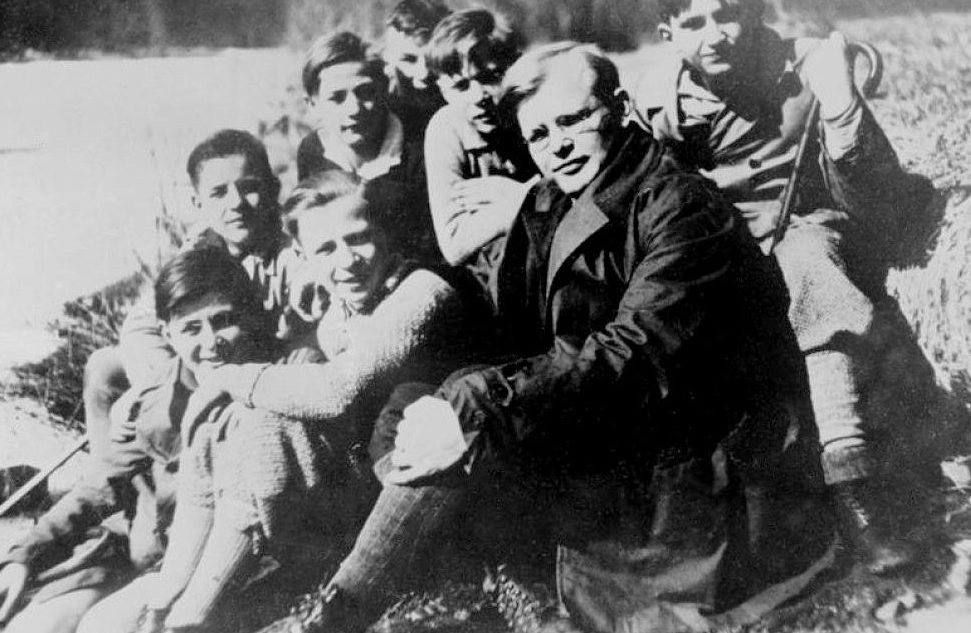
Bonhoeffer with Students in 1932.
Dietrich Bonhoeffer was a Lutheran Pastor and theologian who was executed in 1945 was executed by Nazis in 1945 for his involvement with a plot to kill Hitler. In 1930, Bonhoeffer came to America to pursue a fellowship at Union Theological Seminary in New York. Bonhoeffer was introduced to the Abyssinian Baptist Church by a fellow seminarian. Bonhoeffer served in the ministry there while he was in the U.S. and formed a love and affinity for the Black Church.
Theologians love to draw the connection between Bonhoeffer’s encounter with the Black Church and his resistance work back in Germany. For a detailed treatment of this subject see Reggie L. Williams’s excellent book Bonhoeffer’s Black Jesus.
Bonhoeffer was apparently quite moved by Black Spirituals during his time in America, and even recorded them (Williams 80-1). He said that spirituals were “some of the greatest artistic achievements in America” and described them as having a “strange mixture of reserved melancholy and eruptive joy” (Williams 80). He would later, according to one his biographers, play these Spirituals for his students in his underground seminary back in Germany. His friend and biographer Eberhard Bethage wrote “We hummed ‘Swing low, sweet chariot’ twenty years before the radio and concert halls made it familiar here.” (Bethage, quoted in John W. Doberstien’s introduction to Bonhoeffer’s Life Together 9).
The affinity between Bonhoeffer and the Spiritual tradition isn’t surprising. Both share theological roots in resistance to oppression. The original religious context of Spirituals was in clandestine meetings where enslaved people would sing and worship together. Bonhoeffer’s resistance seminary was also underground. It’s hard not to see the resonance with the early church as well. The type of Christianity these three movements express is an imminent and liberation focused Christianity, which requires “Costly Grace,” an idea developed by Bonhoeffer.
“Costly grace confronts us as a gracious call to follow Jesus, it comes as a word of forgiveness to the broken spirit and the contrite heart. It is costly because it compels a man to submit to the yoke of Christ and follow him; it is grace because Jesus says: ‘My yoke is easy and my burden is light’” (Witness to Jesus Christ “The Cost of Discipleship” 158).
Such grace exists perhaps especially in the midst of oppression. Grace, christian or otherwise, does not release us from our ethical duties to each other, but instead strengthens them.
Bonhoeffer, Dietrich. Life Together. trans. Doberstein, John. Harper & Brothers. 1954.
Dietrich Bonhoeffer: Witness to Jesus Christ. ed. John De Gruchy. Collins Liturgical Publications. London. 1988.
Williams, Reggie L. Bonhoeffer’s Black Jesus: Harlem Renaissance Theology and An Ethic of Resistance. Baylor University Press. 2014.
